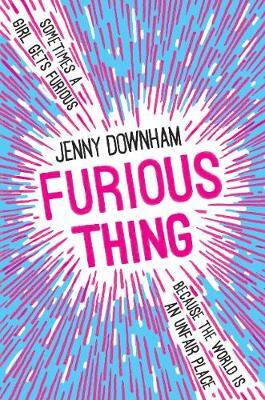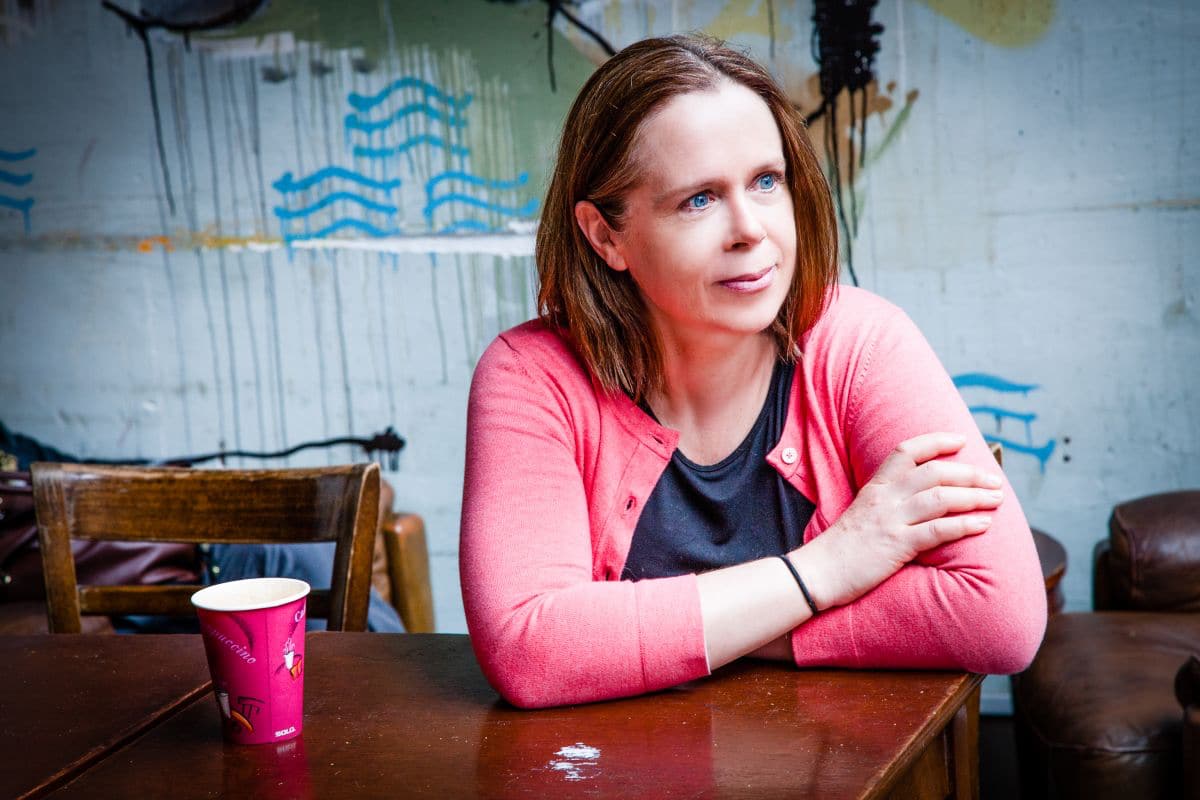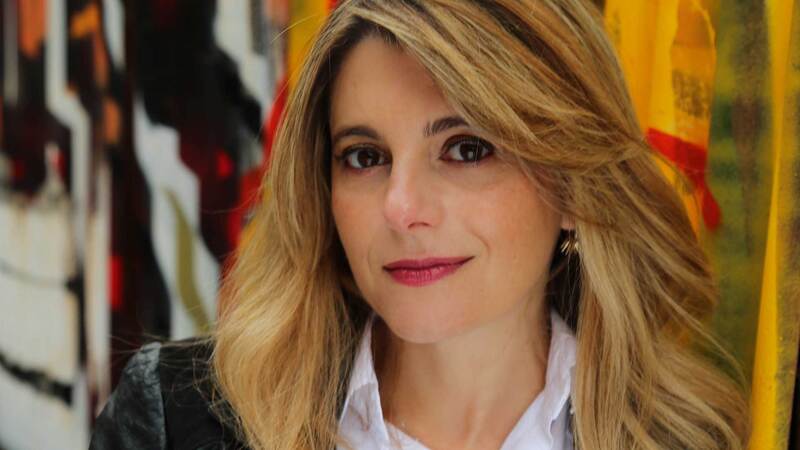You are viewing your 1 free article this month. Login to read more articles.
Jenny Downham | 'Female anger is often seen differently from male anger'
 Charlotte Eyre
Charlotte EyreCharlotte Eyre is the former children’s editor of The Bookseller magazine, and current children's books previewer. She has programmed ...more
Jenny Downham’s new novel Furious Thing tackles the effect a controlling step-father has on a teenage girl.

Charlotte Eyre is the former children’s editor of The Bookseller magazine, and current children's books previewer. She has programmed ...more
When agent Catherine Clarke sent the manuscript of Jenny Downham’s new novel Furious Thing to publishers across Europe, the author began receiving "very personal" messages from in-house readers about people they knew who were emotionally controlling.
 Downham, whose 15-year-old heroine tries to manage her anger while living with an emotionally abusive stepfather, says: "I was getting emails from people I had never met before, saying things like, ‘I want to publish this book; I was worried my colleagues wouldn’t get it because they don’t have a Dad like mine... but when I got to the meeting, they all knew someone like that.’"
Downham, whose 15-year-old heroine tries to manage her anger while living with an emotionally abusive stepfather, says: "I was getting emails from people I had never met before, saying things like, ‘I want to publish this book; I was worried my colleagues wouldn’t get it because they don’t have a Dad like mine... but when I got to the meeting, they all knew someone like that.’"
I don’t do school stuff and I’m quite private. I don’t do social media. But I always answer emails and letters, and I love meeting readers
In the novel, Downham’s fourth published book, Lexi tries desperately to be a good stepdaughter and stay on her best behaviour, despite living with John, a man who can turn against her in an instant—even, at one point, encouraging a private doctor to diagnose Lexi with attention deficit hyperactivity disorder (ADHD). Understandably, Lexi fails to live up to someone else’s idea of how she should behave and explodes at regular intervals, which has repercussions on her family life. But it also helps her to understand that she needs to stand up for herself.
John’s behaviour has an impact on his whole family, particularly his wife (Lexi’s mother), who is too cowed by her husband to defend her daughter in any way, and instead pleads with her daughter to rein her temper in. Downham says she is pleased when readers don’t know whether to feel sympathy towards the mother character because she is abused, or anger towards her because she fails to protect her child—particularly in one scene, in which she runs away to Brighton with her youngest child, Iris, but leaves Lexi behind. "It’s really easy for people to say: ‘Why didn’t she protect her child?’ But that’s a basic misunderstanding of how abuse works. Her resolve and strength have been eroded."
When the mother fled to Brighton she didn’t know what she was doing, said Downham, who believes most people in abusive relationships will leave and return to those relationships multiple times. The trigger for her leaving is discovering John was having an affair with a colleague, and "of course Lexi thinks, ‘Great, let’s kick him out!’
But instead they decide to get married even sooner than planned, to Lexi’s astonishment."
Lexi’s step-brother, Kass, has also learned certain behaviours from his father, which has a huge impact on Lexi, especially because the two teenagers are in a quasi- romantic relationship, culminating in one of the most excruciating sex scenes ever written in a YA novel.
By the end of the story Lexi is most definitely a hero, according to her creator, not that the character would realise it herself. She might even say she has failed, because her mother is still with John and she has failed her GCSEs. She also knows she will continue to be attracted to "bad boys", despite the possibility of a romance with Ben, a school friend who helps Lexi confront her stepfather in a dramatic scene at the wedding. But Downham says Lexi realises she deserves joy on her own terms and not by making everyone else happy, which is a sign of how far she has come. A "pat happy ending" would have made the book unbelievable, she says.
Free thinking
Downham began working on the novel three years ago and, as with all of her books, began with a free-writing exercise. "I start with free-writing—finding voices and tropes and themes—and I found I was writing about a family with a member that doesn’t fit in. I was really interested in the idea of a scapegoat. Why was Lexi so angry and trying to change herself to accommodate everyone else’s feelings? Female anger is often seen differently from male anger, I think, and I am interested in the responses her anger provoked. That was the starting point [for the novel]."
She describes her work as a canvas, and whereas some artists do a whole wash of the page, she creates one top corner in perfect detail; in this case, spending six months writing the first three chapters. "But among that, I’ve got thousands and thousands of drafts that might give me an idea or route. For example, for ages Kass was the biological brother but it wasn’t servicing the story, so I changed that to suit the narrative."
In the time it took her to write the novel, the law changed in the UK to recognise controlling behaviour, and Downham says she began to see how insidious it was. Most people have seen or experienced controlling behaviour, she says, but, interestingly, the response from men and women isn’t always the same. "The female response is often: ‘I know someone like that’, whereas some men have read it and said: ‘What exactly did he do wrong?’ Some younger men have read it and said they want to look at their own behaviour, though—that’s a sweet response."
Downham says the novel is not about "dissing" men. Lexi’s now deceased grandfather, a kind and loving parental figure, is revealed in flashback and Ben is a foil to Kass and John. She says: "He [Ben] is always present and always lovely. He was important because if I’m going to have an abusive man like John, I also need someone who is never going to go there. I didn’t put him in the story on purpose, but I was glad when he showed up." He also believes Lexi without question, vital for anyone in her position, says the author.
The interval
Downham began writing in her early 30s when her second child was born and her previous career, as an actress in a community theatre company, became unsustainable. The first thing she wrote was a short story that won the London Writers’ Competition, which gave her the confidence to try and write professionally. The first book she published was the worldwide hit Before I Die, published in 2007 by David Fickling while he was working at Transworld, and later adapted into a film by the writer and director Ol Parker.
Downham was "freaked out" by the success of the story—at one point, she had journalists doorstepping her house—and describes herself as being "rubbish" when it comes to promoting her work. "I don’t do school stuff and I’m quite private. I don’t do social media. But I always answer emails and letters, and I love meeting readers," she says.
She also describes herself as a "slow" writer and is incredibly modest, despite the intense love her fans feel for her work. "When I first met [my agent] Catherine, I just wanted to keep telling stories. The idea that someone wanted to publish me was just huge by itself."








